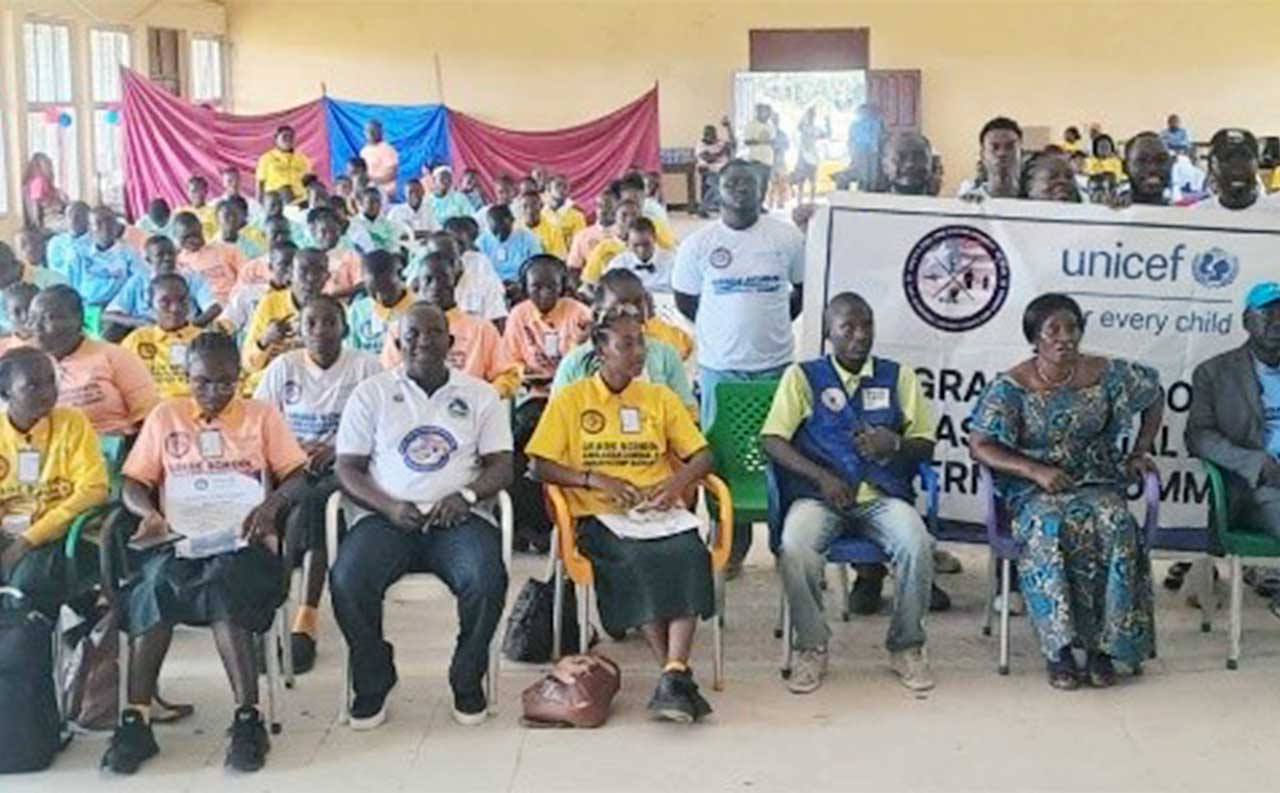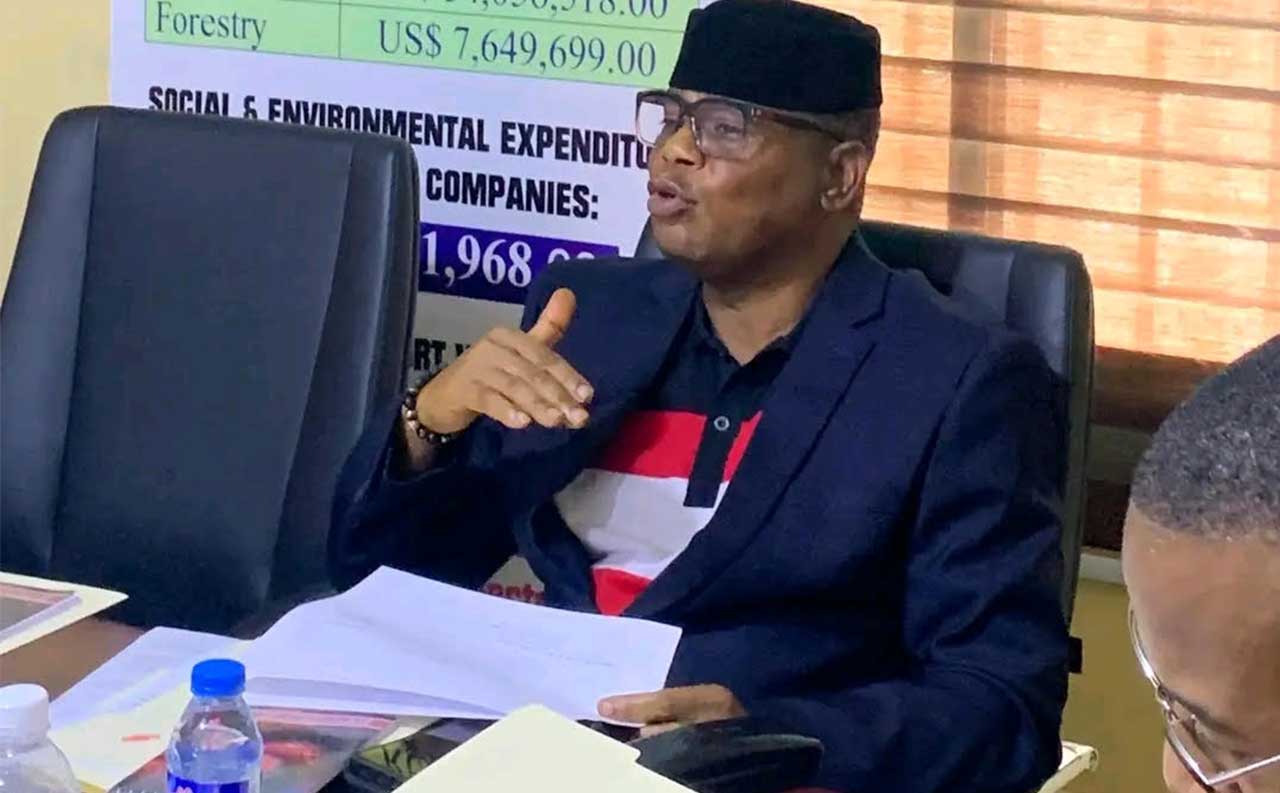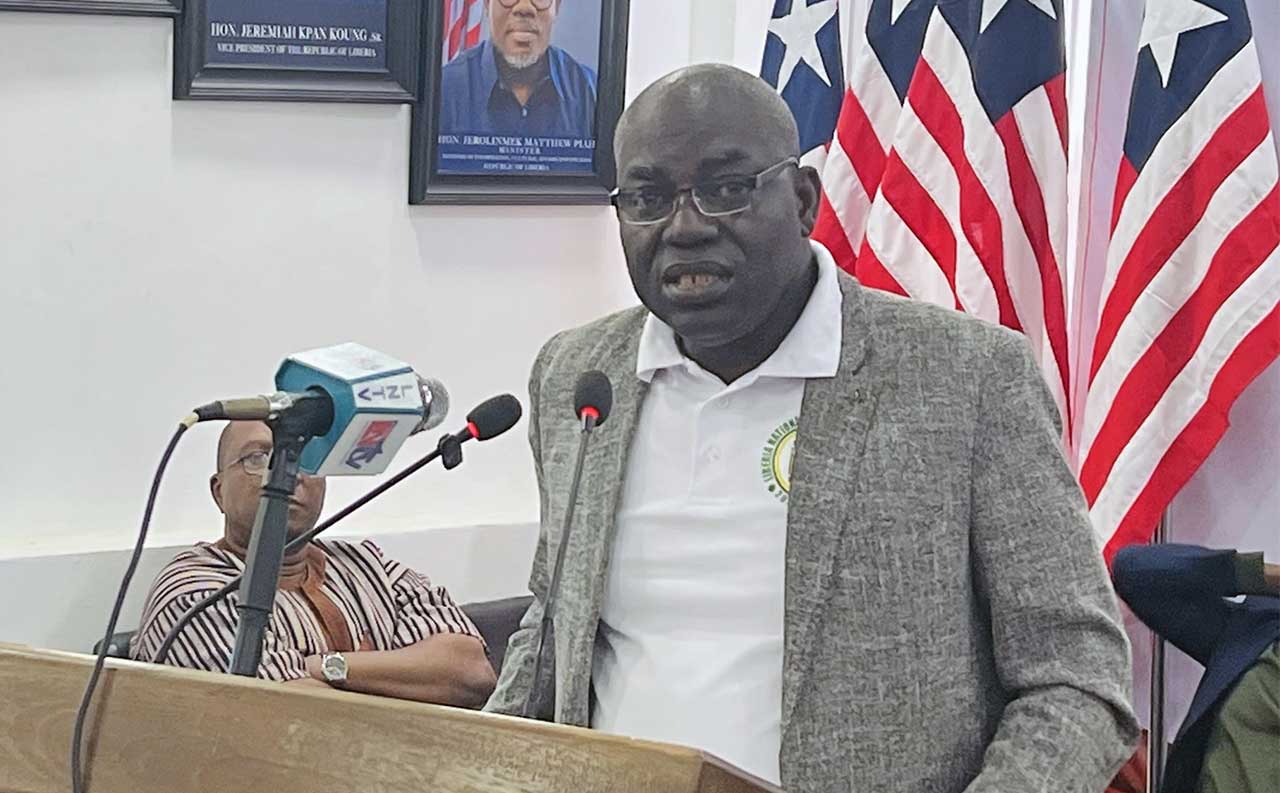Liberia’s next generation is stepping into the frontline of justice and peacebuilding. The Office for the Establishment of the War and Economic Crimes Court for Liberia (OWECC-L), in partnership with UNICEF, has concluded a transformative three-day Grade School Ambassadorial and Internship Summit, an initiative designed to empower students to lead campaigns for transitional justice, human rights, and national reconciliation.
Held in Harbel, Margibi County, the summit brought together students from both public and private schools following similar sessions in Monrovia and Kakata. It sought to deepen young people’s understanding of Liberia’s post-war justice process, particularly efforts to establish the War and Economic Crimes Court (WECC) and the National Anti-Corruption Court.
Speaking at the occasion, Cllr. Jallah A. Barbu, Executive Director of OWECC-L, underscored the pivotal role of youth in shaping Liberia’s justice and healing process. He said, “Our mandate is to ensure that everyone, including children, is engaged, consulted, and heard in establishing these courts. Many young Liberians were not part of the war but live with its consequences. They deserve to understand what happened and to help prevent history from repeating itself.”
Barbu stated that the youth engagement strategy is a key pillar of Liberia’s transitional justice roadmap, designed to foster inclusivity, intergenerational dialogue, and civic responsibility. Also speaking, Dr. Amadou Cissé, UNICEF Liberia’s Deputy Country Representative, praised the summit for prioritizing youth empowerment and civic awareness.
“The youth of Liberia are not just witnesses to history; they are the architects of its peaceful future. Learn from the past, stand up for those who suffered, and defend a justice system that protects every child’s right,” Dr. Cissé declared. He reaffirmed UNICEF’s continued commitment to Liberia’s transitional justice agenda, saying it aligns with the Convention on the Rights of the Child and UNICEF’s mission to promote inclusive participation and civic education.
For his part, Mohammed El-dust Fahnbulleh, representing the Independent National Commission on Human Rights (INCHR), commended OWECC-L and UNICEF for amplifying young voices in national justice discussions. “We must not allow resistance from policymakers to silence the call for justice. Go back to your communities and tell your leaders, you support the court, and you want transparency, fairness, and accountability,” Fahnbulleh said.
Fahnbulleh emphasized that sustained advocacy from young people can help ensure Liberia remains on the path of peace and reconciliation. Cllr. Cora Hare Konuwa, Deputy Minister for Administration at the Ministry of Justice, reaffirmed government’s support for the establishment of the War and Economic Crimes Court. Konuwa urged the students to channel their energy and influence, once exploited during the war, toward promoting peace, civic duty, and justice.



